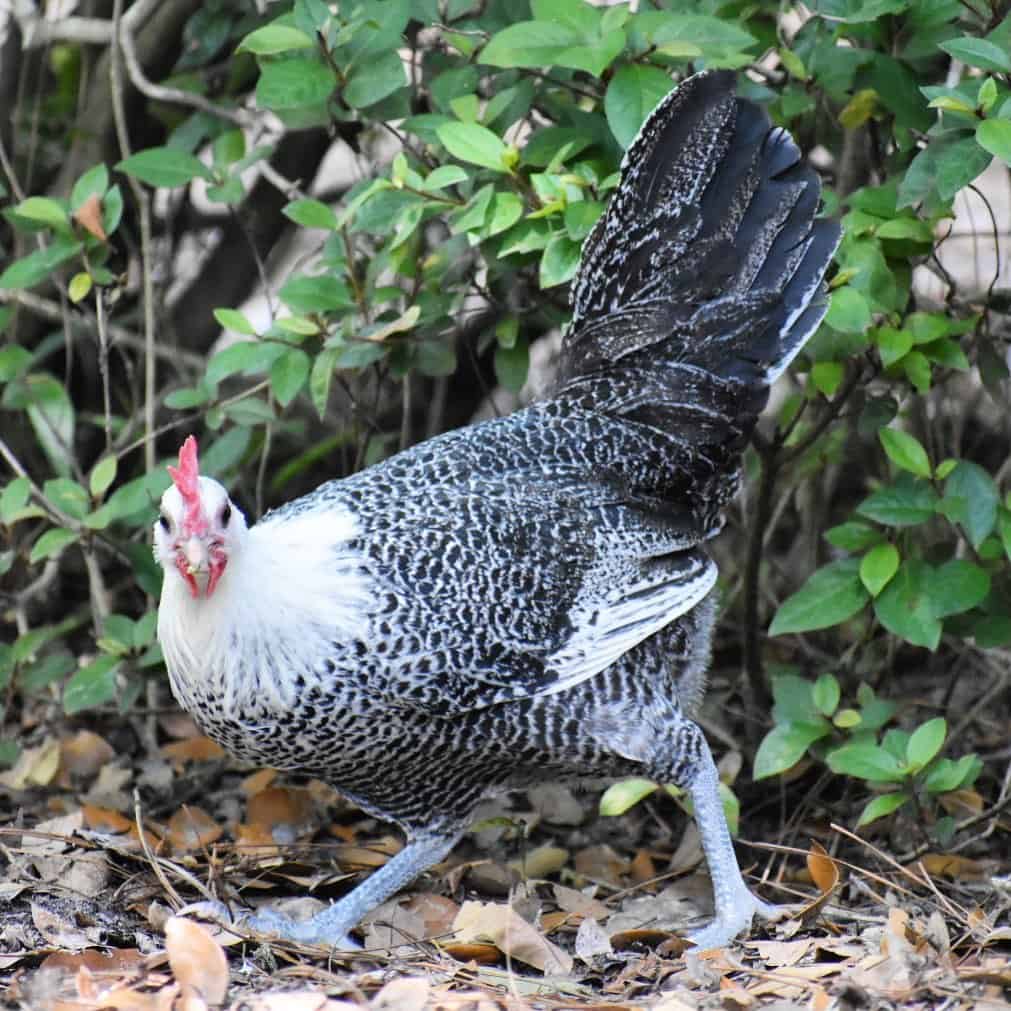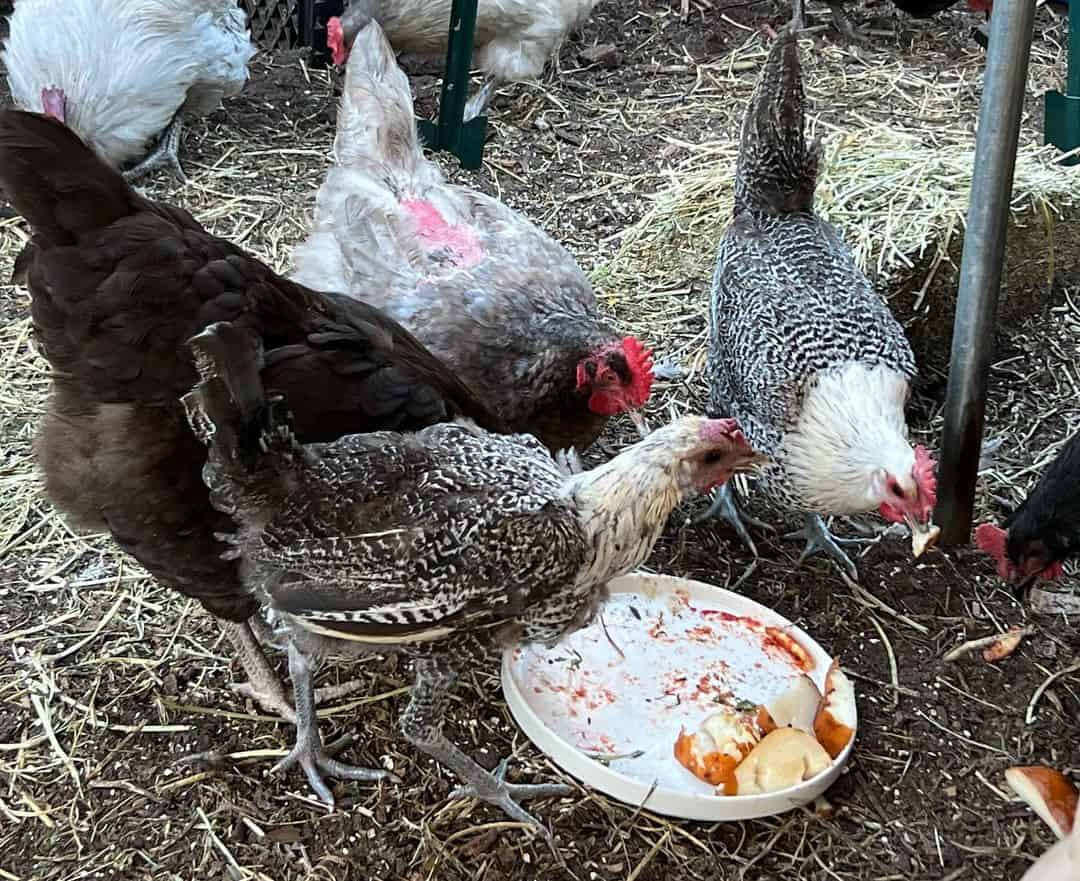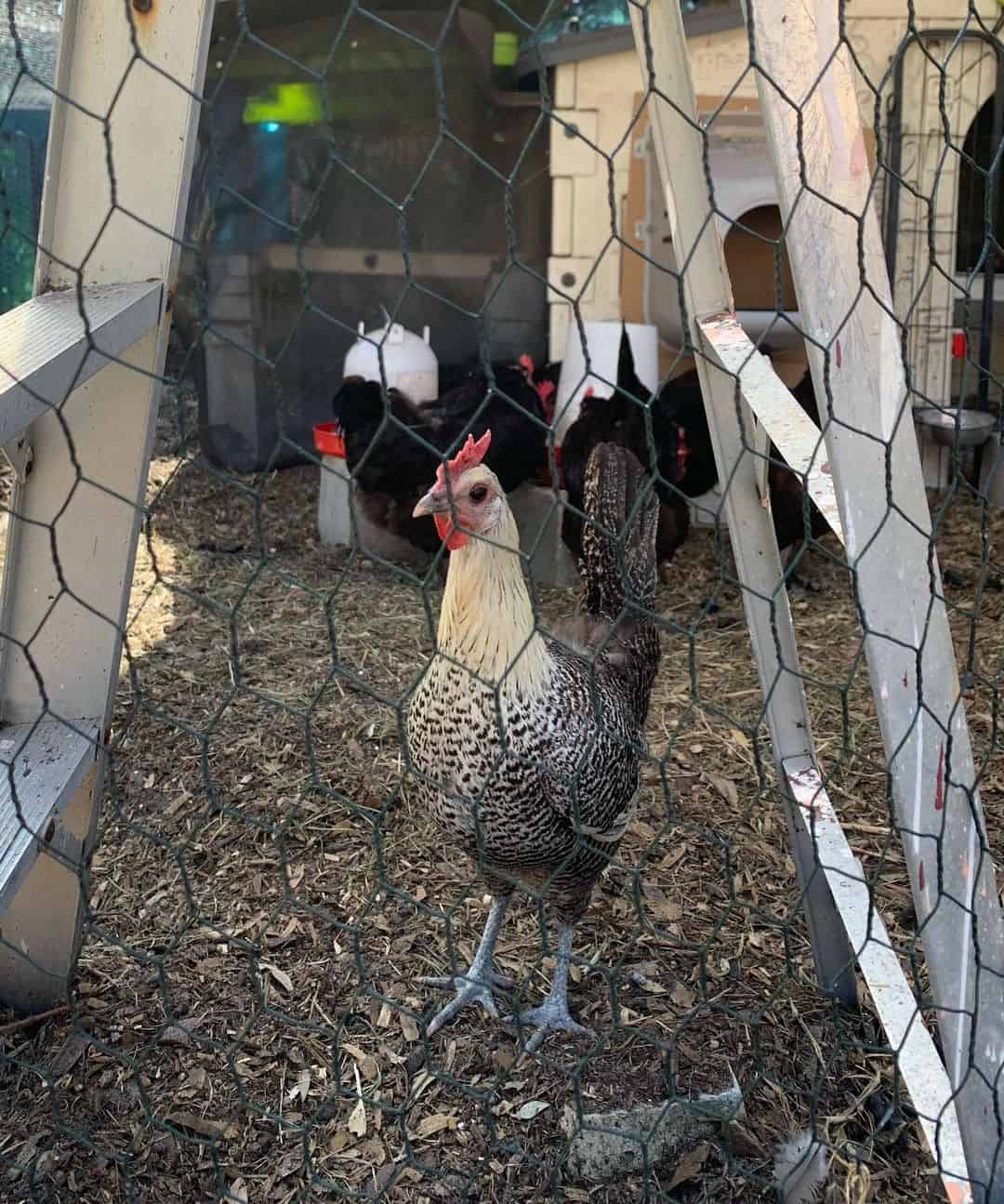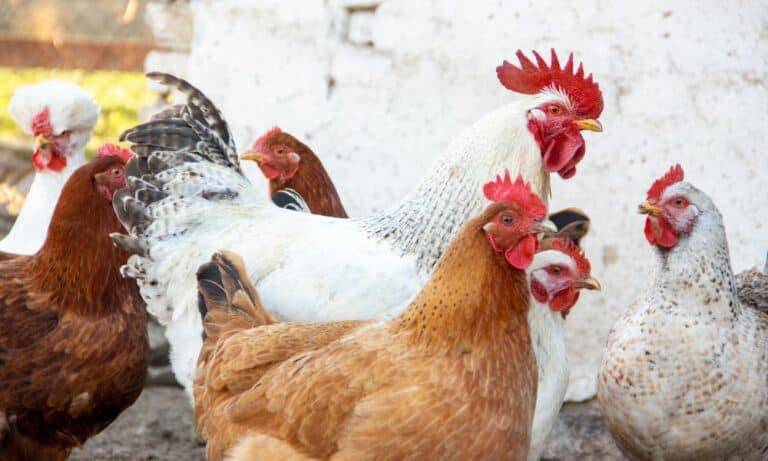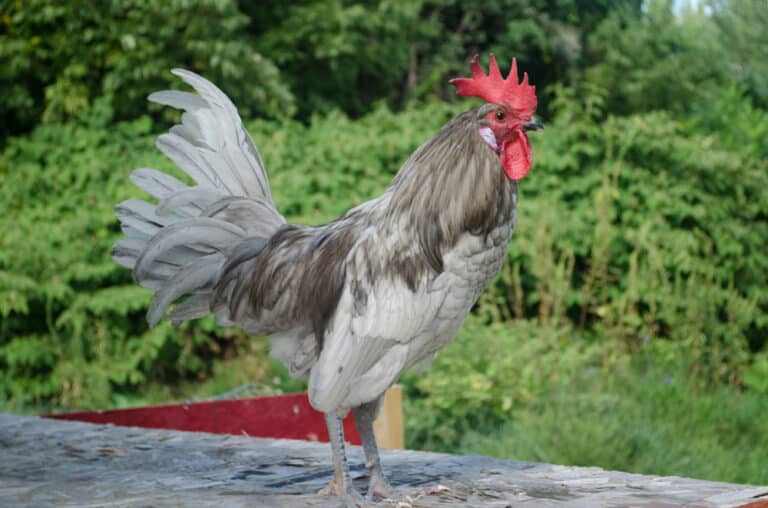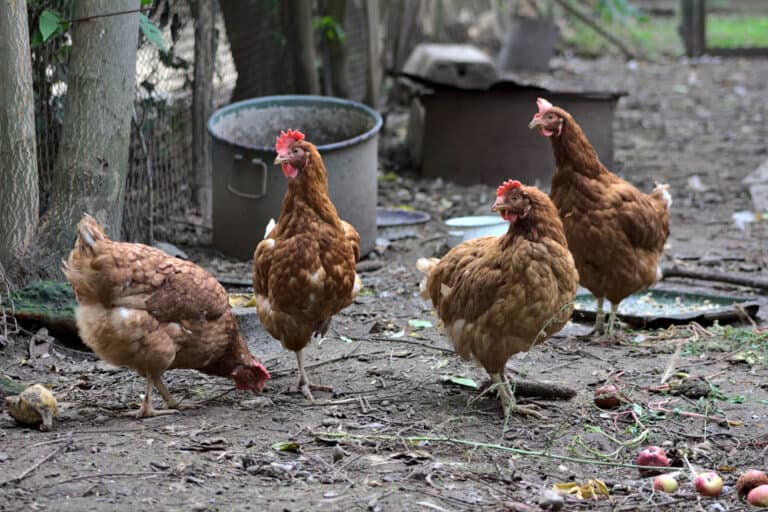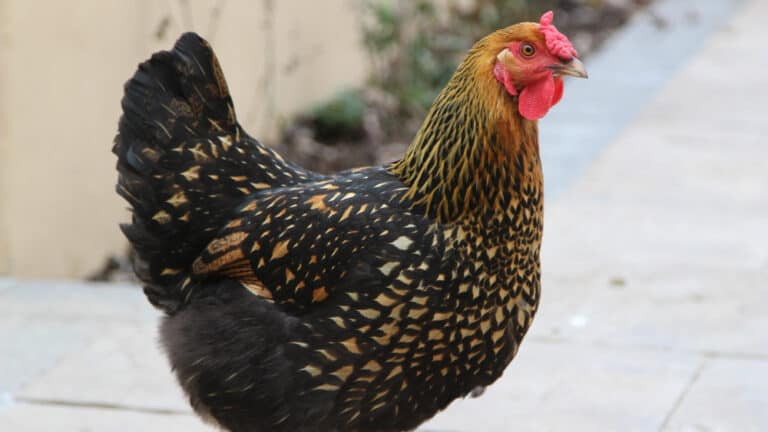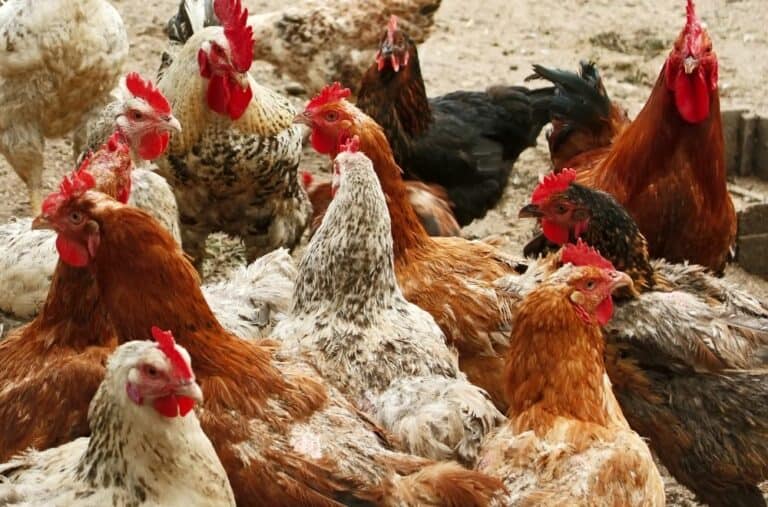The Egyptian Fayoumi chicken might not sound familiar to you if your only knowledge of chicken breeds is centered around American chickens. But if you’re interested in expanding what you know about chickens bred from around the world, this is one you certainly don’t want to sleep on.
The small, gorgeous Fayoumi chickens originated in faraway Egypt and have slowly been bred in North America over the years. They’re memorable for many things, from their beautifully penciled plumage to their tough and flighty personality.
Today, we’ll give you the lowdown on the Egyptian Fayoumi. You’ll learn everything to know about this lovely breed, including their rich history, how they look, what their temperament is like, and their unique genes and characteristics. Let’s jump right into it!
History and Origin of the Egyptian Fayoumi

The Egyptian Fayoumi is an ancient breed that has origins in the Faiyum Governorate, which lies southwest of Cairo, Egypt. It is a chicken that is believed to have been around since the time of pharaohs and Egyptian queens. They were commonly seen near the Nile River.
The origins of the Fayoumi—locally called the “Ramadi”—before their days in Egypt are unclear. Some believe that their ancestor breed hails from Europe, while others think they were from Turkey—another part of the Middle East.
Regardless, this breed is incredibly common in Egypt and other countries in that region in Asia to this day as domestic chickens.
The Egyptian Fayoumi was first brought to North America in 1940. They were imported by a dean at Iowa State University, whose goal was to crossbreed them with American chickens due to their resistance against illnesses (but more on that later!).
The popularity of the Egyptian Fayoumi is not that high in America today. As of writing, the breed has not been recognized by the American Poultry Association. Nor is it part of the American Standard of Perfection.
What Does an Egyptian Fayoumi Look Like?
As baby chicks, Fayoumis have brown heads and gray bodies with specks. They’ll only start developing their colors as they get older. Luckily, you don’t have to wait too long to see these colors. This breed is known to mature quite fast.
In adulthood, an Egyptian Fayoumi will have a small and light body with a gracefully long neck that they hold high. They also have an upright, vertical tail and a breast that juts out, making them look even more regal and tall for their size. Meanwhile, their large, dark eyes pierce the soul.
Much like in their early weeks, their head will appear silver-white. This light color extends to their neck.
One of the most beautiful physical attributes of the Egyptian Fayoumi is the penciling in its feathers. You’ll notice a black and white barring across their body that looks like lace. This goes from their saddle to their tail feathers, which have a unique green sheen to them.
There are two known color varieties for this breed—silver-penciled and gold-penciled Fayoumis. The latter looks similar to the silver-penciled kind, except instead of a black and white appearance, there will be golden brown and black penciling instead.
Their skin underneath will take on a slate blue color, while their wattles and comb will be bright red. Their beaks, on the other hand, will have a deep beige-yellow shade.
Egyptian Fayoumis are small in size. On average, hens will weigh just 3.5 lbs in adulthood, while roosters weigh in at 4.5 lbs.
Check out how Egyptian Fayoumi chickens look like at six months of age through this quick video:
Egyptian Fayoumis are Good Layers and Meat Producers
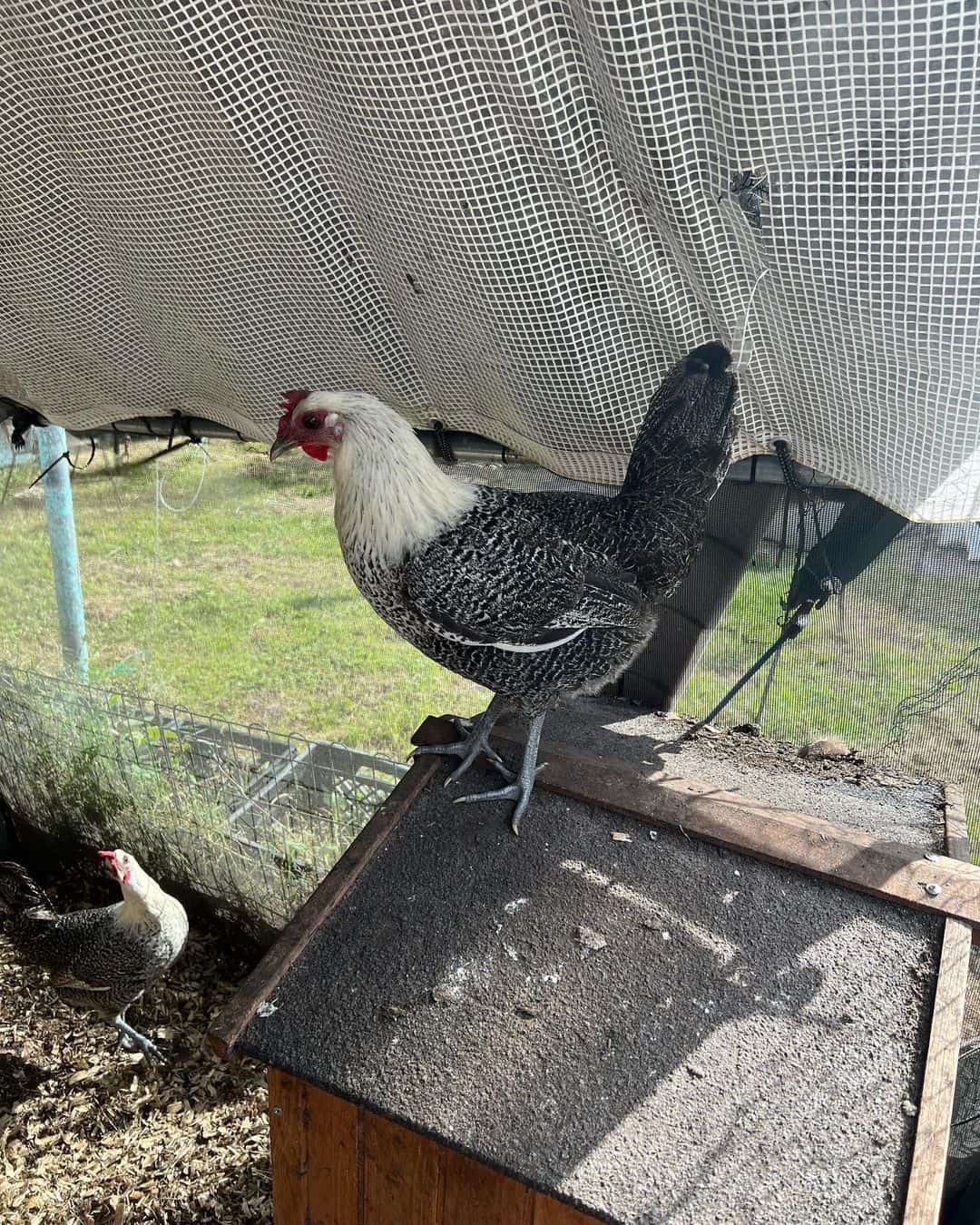
While Fayoumis are fun to look at, they’re also a functional breed. In Egypt, they’re used for meat production. So, you can be sure your Fayoumi’s meat will be juicy and tender, even for its small size and yield.
Female Fayoumis are also excellent egg layers. Since the breed matures fast, you can expect your pullets to lay eggs as early as four months old. They’ll give you anywhere between 150-200 eggs each year—which isn’t bad for a small chicken.
The eggs they lay are small and have a cream or off-white color. And while they have a high yolk content, these white eggs are known to have lower cholesterol than other chicken eggs.
Egyptian Fayoumis are Incredibly Resistant to Disease

Earlier, we mentioned that the Egyptian Fayoumi was brought to the United States in an attempt to crossbreed them with American chickens to make them more resistant to disease.
This is because, for years, scientists have studied the genes of Fayoumis and have found that they are innately more resilient against chicken diseases. These include Newcastle disease, salmonella, avian influenza, and many more.
For example, a study has shown that the Fayoumi has what is known as the ChB6 gene, which is resistant to the virus that spreads Marek’s disease.
Because of this resilience to avian diseases, the genes of the Egyptian Fayoumi are constantly being studied. The goal of scientists is to use their genes to breed more disease-resistant chickens in the future.
Of course, the Egyptian Fayoumi isn’t perfect in the health department. While they have outstanding disease resistance, they are very sensitive to cold weather.
Because of their Egyptian origins, they have a hardiness for hot climates. However, due to their big comb and light plumage, they barely survive harsh, cold weather. If you’re interested in getting yourself an Egyptian Fayoumi, make sure you live somewhere with hot weather.
Temperament and Personality of the Egyptian Fayoumi
Before adding a Fayoumi to your flock, it’s important to know what their temperament is like. Here are some of the Egyptian Fayoumi’s most interesting personality traits:
1. Flighty and don’t like being handled
Fayoumis are notorious for their dislike of being handled by people. They hate being picked up and usually become noisy during handling. Sometimes, they’ll even scream when you get too close to them.
You can try to tame them and get them to like you with a few treats here and there, but they will never be as docile as beginner-friendly chicken breeds.
2. Strong fliers when they want to get away
Because they are small and lightweight, Egyptian Fayoumis can fly to get away whenever they want. This makes them a flight risk (no pun intended) on the farm. So, make sure that you create boundary fencing or netting for them around the coops so they don’t escape.
3. Roosters aren’t as aggressive around each other
Roosters have a reputation for being extra aggressive around other males. However, this doesn’t seem to be as big of a problem with Fayoumis. Roosters of this breed get along with each other. Because they’re so tolerant of other males, fights are unlikely to break out.
4. Don’t appreciate confinement in one space
Fayoumis hate being confined in a small, tiny space where they can’t roam around and explore. When they’re confined for long periods, the responses of Fayoumi chickens include feather-picking and trying to escape the coop in other ways.
Make sure they have a huge space to walk around in. And don’t keep them locked up in an enclosed space 24/7. Give them at least a few hours of free time to walk around the yard and roost in trees so they don’t feel too claustrophobic.
5. Thrifty when allowed to free-range
Free-ranging is when a chicken is allowed to freely roam and forage for natural foods and proteins in the wild instead of being confined in cages and coops. Because Fayoumis are independent and hate small spaces, this is something they love to do.
And when you do allow them to roam around the yard, you’ll see how thrifty and resourceful they are. They’re amazing at foraging small animals and insects for protein, which makes them stronger and better egg layers.
Who Should Get an Egyptian Fayoumi in their Flock?
Egyptian Fayoumis may not be the best chickens to add to your flock if you’re a first-time chicken raiser. They’re incredibly flighty, super energetic, and need extra care when it comes to free-ranging because they tend to try and escape.
Experienced chicken farmers who know how to tirelessly handle active, intimidating chicken breeds might be the perfect fit for Egyptian Fayoumis. But if you’re a novice chicken raiser, it might be better to start with friendlier, more docile breeds, like a Rhode Island Red or a Buff Orpington.
Conclusion
If you’re up for the challenge of owning and raising the flighty yet stunning chicken that will assure you efficient egg and meat production, the Egyptian Fayoumi might be a good fit for you.
They may not be the easiest to handle, but watching them live life is more than interesting. Apart from the fact that they love to free-range and can fly when they want to, they’re also incredibly resilient against avian diseases, making them ultra-active.
Got any more questions or thoughts about the Egyptian Fayoumi? Drop a comment down below so we can learn about this captivating breed together!

